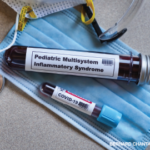The document also includes guidance regarding immunomodulatory and anticoagulation treatment in MIS-C and when and how biologics may be introduced. MIS-C treatment may include low- to moderate-dose glucocorticoids, or high-dose, intravenous pulse glucocorticoids in patients with life-threatening complications, such as shock. It also gives specifics on timing, dosages and testing.
Key Messages Emphasized
Dr. Henderson was on service at Boston Children’s Hospital during the first wave of East Coast pandemic cases. “We saw quite a lot of MIS-C patients, and I cared for them on the week that we were the busiest,” she recalls. She and her colleagues from Boston Children’s have developed a manuscript summarizing their experience with more than 30 MIS-C patients. “Fortunately,” she says, “the patients all did very well and got better fairly quickly.” This is a message that’s also embedded in the guidance document: The vast majority of children with COVID-19 present with mild symptoms, and MIS-C remains a rare complication.
However, she adds, the field is evolving, and our knowledge of MIS-C will change over time. Understandably, patients’ families and frontline emergency and pediatric physicians voice worry and concern when the syndrome develops in their patients.
Although there is still a lot we don’t know, Dr. Mehta says, “I’ve been telling my patients that our data are showing that patients with rheumatic disease or immunosuppression are generally doing very well. On a population level, we are not seeing bad outcomes.” The current clinical guidance documents may offer an additional benefit for pediatric rheumatologists who practice in outlying areas, he says. “Even if they are not in a hot spot, they can find their closest colleague and ask for an opinion.”
Gretchen Henkel is a health and medical journalist based in California.



